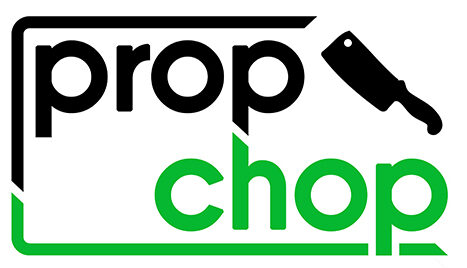
You know what I like to say about your odds of making that flush at the poker table? “Every draw is 50/50. You’ll either hit it, or you won’t.” Beyond the obvious dishonesty of the statement, I love it wholeheartedly for its raw truth. To the results-oriented player, draws sort of are a 50/50 proposition: I’m either going to have all of that money, or I’m not. Once the journey is completed, the path walked is of little relevance. But a positive or a negative outcome does not always align with the quality of the process that informed the decision. Starting a random WR3 who goes off for two scores does not inherently make you a genius, in the same way that starting Bijan Robinson and receiving 0.3 fantasy points for your troubles does not make you an idiot. The best thing we can do if we want to increase the probability of our results, is to focus on having a good, consistent process.
In most gambling environments, the process involves using available information to derive an expected value from any given decision, and then choosing the one with the highest EV. Thinking back to our poker hand, it’s not just the likelihood of completing a draw that we must consider, but the amount of value we should expect to receive for taking on that risk. If we determine a 25% chance of winning the hand, and the amount of money we stand to win is greater than 4:1 against our money, it’s a plus EV play to take on that risk. Although we stand to lose this hand in 75% of our opportunities, we will win enough money the other 25% of our chances to see profits over time. If, however, we are only getting 2:1 against our money, it’s no longer a positive expected value to take on the risk, and we can fold.
Football betting works largely the same way. You are looking to use information to find spots in which you can leverage a positive expected value. Though any individual bet may have longer odds of success and higher short-term risk, the value of the payout relative to the risk can still make it a profitable wager. Just because any bet may lose at any time does not make it a bad bet, and the inverse is also true. The idea is that, the more consistently you can make bets with a positive expected value, the higher likelihood you have of seeing a positive return over time. That’s why the casino always wins. Someone is going to win 36:1 at roulette occasionally, but that 5-25% edge the casino has on any given game makes it virtually impossible for them to lose over time. The casino can easily take on these large short-term risks, because they know the process will lead to positive value over time. The sportsbooks operate in the same way. Their volume of action and pricing dictates that they will profit over time, so we are trying to consistently be in the party on the smaller pool of their equation. After all, every bet has a winning side.
If we can learn to abandon our attachment to results, and focus strictly on the quality of our process, we inherently increase the probability of positive results over time. In gambling, it can be very difficult to detach oneself from results, because the results are literally cash. That is why it is essential to follow this common advice: never risk what you’re not willing to lose. Beyond gambling, focusing on process over results is valuable in many areas of life. We’ve all heard some version of “Give me the strength to control that which I can control, and let go of that which I can’t,” but few of us seem to take it to heart. I believe most people would find themselves happier and more successful if they did so. We expend a lot of energy fretting over the uncontrollable. This negativity also encumbers our ability to reflect upon our process. If you maintain a positive mindset and consistently make good, well-reasoned decisions, you will be much more likely to find success and happiness. By learning to let go of the times when things don’t pan out, if you know you’ve done your best with the information available to you, it becomes easier to prepare for the next decision.
I’ve had great days betting football, and I’ve had bad days betting football. And while it’s easy to get lost in the dollars and numbers, the most important thing at the end of either of those days was whether I thought I had a good process. Had I made good decisions? Did I do the best with the information available to me? Running Back A is averaging 5.5 yards per touch on the season. You believe that RB A will receive at least 12 touches in today’s game. The opposing defense is missing its best run stopper. You decide to bet that RB A will surpass 57.5 total yards. As it turned out, RB A actually received 15 touches in the game, but finished with just 55 total yards. Was that a bad bet because you lost? Of course not. But a consistent process will yield consistent results. If you could bet that same spot 100 times, there’s a reasonable expectation that you will come out on the winning side of that equation. There is nobody that can win every sports bet, but if you can put yourself in good spots more often than not, you will see returns. Focusing too harshly on the results of a decision can inhibit your ability to determine whether or not the decision was sound in the first place. Focus on having a good process, and you’ll find yourself with more opportunities for success.
